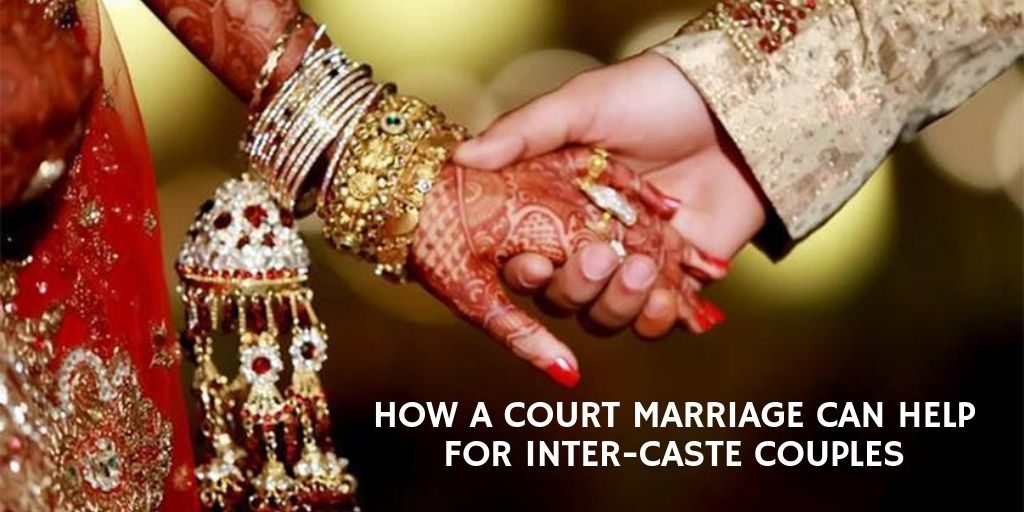
Inter-caste marriages are a significant step toward reducing caste-prejudices and abolishing ‘untouchability.’ It also helps in spreading the values of equality and liberty in society. A court marriage helps the inter-caste couples to legalize their marriage. It is a simple, hassle-free, and economical procedure as well. The marriage can be solemnized in front of a marriage registrar and three witnesses.
In MyAdvo, with the help of a court marriage expert, you can know all the details that how to complete a hassle-free court marriage process.
Conditions for a Court Marriage
- None of the involved parties can have a spouse who is alive.
- The bride should at least be 18 years old and the groom must be at least 21 years old.
- The involved parties must not be related to each other within the degree of a prohibited relationship as defined in the Act of Special Marriage.
Steps for court marriage
- Both the bride and groom will be given a checklist of documents and a questionnaire for recording their details. Once MyAdvo receives the duly filled in the questionnaire, it will issue an intended marriage notice.
- You will then need to choose the jurisdiction where you want your marriage to be solemnized. Either the bride or groom must have lived in that district for a minimum of 30 days before the notice was filed. The marriage will be solemnized at the office of the marriage registrar of that district.
- MyAdvo experts will then set up a meeting where you along with your partner and three witnesses will have to appear before the marriage registrar. There, he or she will check and finalize the documents.
- The marriage registrar will then publish the intended marriage notice. Along with that, he or she will also invite objections regarding the same. The objections must be raised within 30 days of publication.
- If someone raises an objection, the marriage registrar will give all the parties to present their case. The marriage won’t be solemnized if the objection is found to be true.
- If there are no objections or the objections have been removed, the legal procedure will continue. Both the bride and groom, along with the same three witnesses will have to reappear before the marriage registrar. They will then sign a declaration solemnizing the marriage.
- Once that is done, a marriage certificate will be issued by the marriage registrar. It will have to be signed by both the parties and the same three witnesses.
Documents Required
From the Bride and Groom
- Affidavits from both the bride and groom that includes their date of birth, present marital status, along with a declaration that they are not related to one another within the degree of prohibited relationship defined in the Special Marriage Act.
- Residential proof of both the parties. A photocopy of Aadhar Card, Passport, Voter Card, Driving License, Ration Card, and Rent or Lease Agreement can be given.
- A photocopy of class 10th certificate, birth certificate, or passport along with four passport size photographs must be given.
- The intended marriage notice duly signed by both the bride and groom must be submitted and if any of the involved parties is a divorcee, he or she must submit a copy of the divorce order/decree.
From the Witnesses
- Each witness must submit a photocopy of their PAN Card
- A photocopy of their Identity Document must also be submitted by each witness. Aadhar Card, Voter Card, PAN Card, Driving License, NFS Ration Card, or any Govt. recognized document can be provided.
